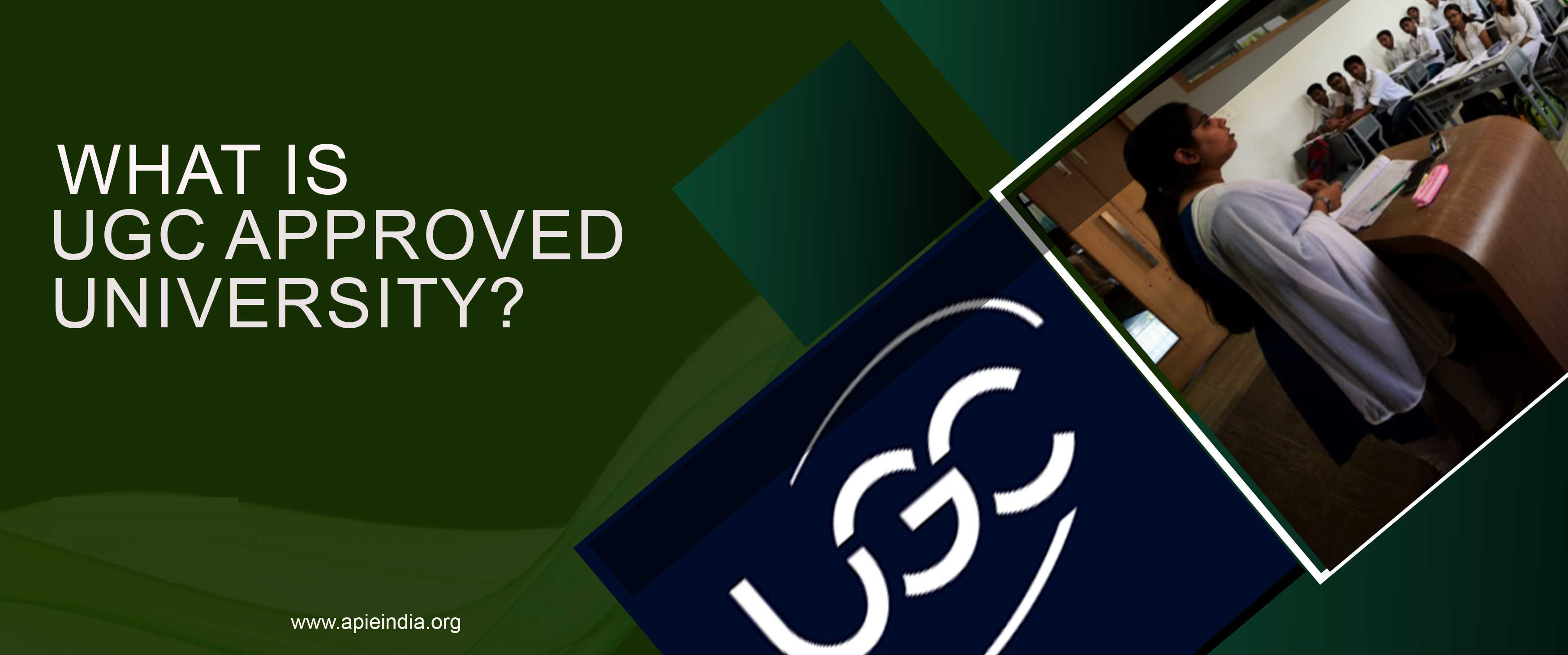What is UGC Approved University?

WHAT IS UGC APPROVED UNIVERSITY?
University Grant Commission (UGC) is a statutory body in India with the authority to accredit Central/State Universities in India based on educational standards. The UGC finances affiliated institutions and colleges. Private institutions in India are also approved by the UGC. Therefore, a university that has received the University Grants Commission of India's approval is referred to as a UGC-accredited university.
The headquarters are in New Delhi, while regional offices are located in Pune, Bhopal, Kolkata, Hyderabad, Guwahati, and Bangalore. The Government of India is debating a plan to replace it with a fresh regulating organisation called HECI. The UGC offers PhD fellowships to all individuals who pass the JRF portion of the National Eligibility Test. The commission spends an average of 725 crore (US$91 million) every year on doctoral and post-doctoral fellowships.
If your college is not recognised by the University Grants Commission, your degree is not genuine, under Indian Government Regulation.
Universities that have been approved by UGC
According to the most recent UGC update, there are 1072 UGC-approved universities in India, which include:
- 460 State Universities
- 128 Deemed UGC Approved Universities
- 54 Central Government Universities
- 430 Private UGC-Approved Universities
Types of universities regulated by the UGC
- Central Universities - Central universities, also known as Union universities, are governed by the Department of Higher Education in the Ministry of Education and were founded by a parliamentary act. As of October 18, 2022, there are 55 central institutions on the UGC's list of central universities.
- State Universities - State universities are managed by the state governments of India's states and territories, and are usually founded by a local legislative assembly act. The UGC includes 456 state universities as of August 23, 2022.
- Deemed Universities - A deemed university is an autonomous status granted by the Department of Higher Education on the advice of the UGC under Section 3 of the UGC Act. The UGC classifies 50 institutions as Deemed to be Universities under Section 12(B) of the UGC Act, 1956, as of August 24, 2022.
- Private Universities - The UGC has given its approval to private universities. They are permitted to confer degrees but not establish connected colleges off-campus. The UGC list of private universities includes 421 institutions as of August 23, 2022.
The University Grants Commission (UGC) has also made public a list of the 21 fraudulent universities that are currently operational in India as of August 25, 2022. According to the UGC, these 21 purportedly unrecognised colleges that operate in violation of the UGC Act have been deemed fake and are not permitted to grant degrees.
Professional Councils
The following fifteen autonomous statutory institutions are in charge of regulating university accreditation for higher education under the direction of the University Grants Commission:
- All India Council for Technical Education (AICTE)
- Indian Council of Agricultural Research (ICAR)
- Bar Council of India (BCI)
- National Council for Teacher Education (NCTE)
- Rehabilitation Council of India (RCI)
- National Medical Commission (NMC)
- Pharmacy Council of India (PCI)
- Indian Nursing Council (INC)
- Dental Council of India (DCI)
- National Commission for Homoeopathy (NCH)
- National Commission for Indian System of Medicine (NCISM)
- National Council for Rural Institutes (NCRI)
- Council of Architecture
- Various State Councils of Higher Education (SCHE)
2 Comments
Jordan Singer
2d2 replies
Santiago Roberts
4d